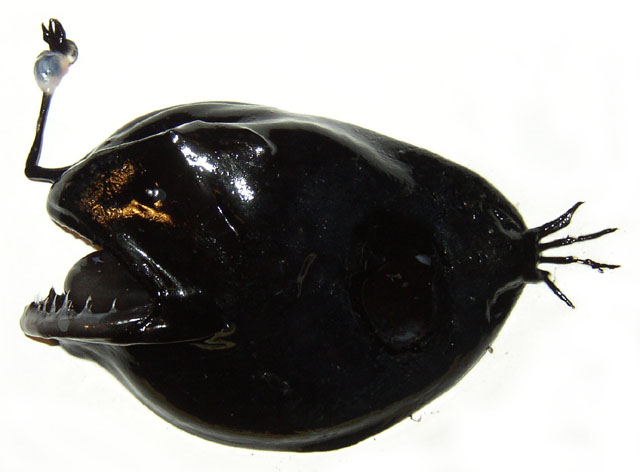| Oneirodidae (Dreamers) |
| 24.5 cm SL (male/unsexed); 20.7 cm TL (female) |
|
bathypelagic; marine; depth range 500 - 1000 m |
| Tropical to temperate parts of all oceans. Northeast Pacific: south of southern California to Oregon, USA (Ref. 265). |
|
Dorsal soft rays (total): 6-8; Anal soft rays: 5-6. Distinguishing characteristics of metamorphosed female: esca with a pair of elongate internally pigmented and bilaterally placed anterior appendages, less than one-tenth to greater than length of escal bulb; smaller ratio between number of upper and lower jaw teeth, 0.70-0.94; total number of teeth in upper jaw teeth 28-40, lower jaw 34-57 teeth; vomerine teeth 4-8; length of illicium 22.4-40.3% SL; escal bulb width 5.3-11.4% SL; has fewer dorsal and anal fin rays than C.ramifera, and greater number of pectoral fin rays than all other species of the genus (Ref. 86949). |
| Bathypelagic (Ref. 58426). Also mesopelagic. Males dwarfed, non-parasitic (Ref. 10524). Feeds on fishes, cephalopods and crustaceans (Ref. 58426). |
|
Least Concern (LC); Date assessed: 04 February 2009 Ref. (130435)
|
| harmless |
Source and more info: www.fishbase.org. For personal, classroom, and other internal use only. Not for publication.
